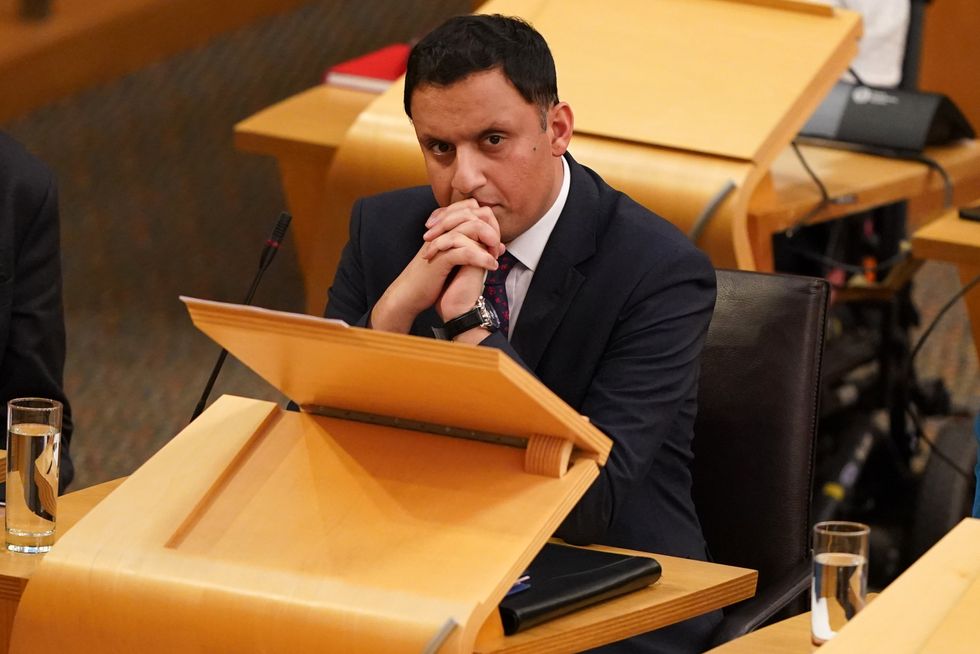
 Press Releases
Press Releases 
Just when it seemed like the Labour civil war was starting to simmer down, Keir Starmer has found himself back in the firing line.
Since taking a firm Pro-Israeli stance back when the violence broke out in October, Starmer has faced criticism from councillors and party members on the left of the party, who tend to be more sympathetic to the Palestinian cause.
And last week the issue came to a dramatic head when the Labour leader lost an eye-watering 10 members of his Shadow front bench – including popular and vocal Jess Phillips – after they defied the party whip and voted for a ceasefire.
In the days that followed Phillips et al took a placating line, reassuring excitable journalists that they would be fully supporting Starmer from the backbenches.
WATCH: Starmer rejects ceasefire over concerns it will embolden Hamas
The Labour leader echoed this conciliatory tone, implying (through the medium of Starmer loyalist John Healy) that the sacked shadow ministers could well find themselves back on the front benches in the event of a Labour election victory.
And that, so we thought, was that. Until yesterday, when Scottish Labour leader Anas Sarwar threw a spanner in the works by confirming that the Scottish Labour would be voting for a ceasefire in a Holyrood vote this afternoon, tabled by the SNP.
Until now, Starmer and his Scottish counterpart have always enjoyed a very close relationship. But it is now under considerable strain: sources close to the new men suggest that their meeting in Scotland last week was tetchy.
With Labour in opposition, the fact that Starmer and Sarwar disagree on middle eastern policy is really neither here nor there: what Labour MSPs and MPS think about a ceasefire in Gaza will have no impact whatsoever on the actions of Israelis and Palestinians on the ground.
In the (likely) event of a Labour election victory, however, a disagreement of this scale between two British Labour leaders could become more problematic. Prime Minister Starmer would hardly cut an impressive figure in the Commons – or with the voting public – if it looked like he couldn’t even control his own MSPs.
It bodes badly for Labour, too, that the relationship between Starmer and Sarwar is deteriorating.
The Labour election strategy is dependent on winning plenty of seats in Scotland from the SNP, but if Scottish voters think that the Holyrood and Westminster parties are in disagreement, that may not happen: as Boris Johnson learnt to his peril when he fell out with Scottish Tory leader Ruth Davidson, voters don’t like inter-party discord.
LATEST DEVELOPMENTS:

‘Scottish Labour leader Anas Sarwar threw a spanner in the works by confirming that the Scottish Labour would be voting for a ceasefire in a Holyrood vote this afternoon, tabled by the SNP’
PA
While Labour is riding high in the polls, none of this is likely to be an existential crisis for Keir Starmer.
Even if he entirely lost the backing of his Scottish counterpart, he would more than likely keep his job: there is simply no appetite among the Labour Parliamentary Party to change Labour leader.
That said, there are plenty in Westminster who believe that Starmer’s popularity is miles wide but inches deep.
And if that is indeed the case, the last thing the leader of the Opposition needs is a huge battle with the up-and-coming electoral force that is Scottish Labour.
24World Media does not take any responsibility of the information you see on this page. The content this page contains is from independent third-party content provider. If you have any concerns regarding the content, please free to write us here: contact@24worldmedia.com